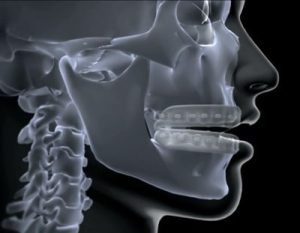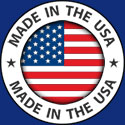Questions?
How to mold a mouth guard?

I cringe each time someone asks me how to mold a mouth guard. This tells me the person plans to only protect half their teeth and soft tissue. The Denta-Gard® mouth guard does not require molding. It protects both top and bottom teeth. There are many mouth guards on the market today. To wear most of those mouth guards you need to know how to mold a mouth guard. A lot of companies claim their mouth guard is the best. After reading the information below, we are sure you will agree that the Denta-Gard® is the best mouth guard.
How to mold a mouth guard is not a question you need to ask when you wear a Denta-Gard® mouth guard. Simply take it out of its protective case and insert it into the mouth. This is one the of features that will distinguish the Denta-Gard® from other mouth guards. Choosing the best mouth guard can be confusing. Our goal is to clarify some of the differences so you can make the right choice for yourself.
The Denta-Gard has these outstanding features:
- Worn over dental braces - Does not counteract an orthodontist's technically and precisely planned movement. Therefore, preserving corrections and adjustments your orthodontist has scheduled.
- Concussion reduction - This is an important, but controversial subject. There are no clinical trials to support the statement that a mouth guard will protect against concussions. One theory is that a mouth guard should dissipate and/or absorb the force of an upward blow to the jaw. It should be approximately 4mm in thickness on the occlusal surface. Denta-Gard® has these properties. In addition, cushioning between upper and lower teeth can be effective at reducing the incidence or severity of concussions.
- Protects both upper and lower teeth - Why wear a mouth guard that only protects half of your teeth? The unique design protects both upper and lower teeth at the same time.
- Allows open mouth breathing - The natural spring hinge allows open mouth breathing and understandable speech.
- Comfortable to wear - Soft and pliable, yet strong and tough. Comfortable to wear. Athletes tend to wear it more consistently than other mouth guards.
- Virtually indestructible -Athletes tend to chew down the ends of common plastic mouth guards. As a result, coaches and trainers can't determine if the guard is offering protection. Virtually impossible to chew through. Therefore they do not even try to chew it.
- Latex and BPA free
- Made in the USA - With FDA approved materials.
In conclusion, the Denta-Gard does not fall into the standard three mouth guard category types listed below.
- Stock mouth guards: Inexpensive and usually purchased at sporting goods stores. In most cases can not be worn with braces. In addition, they only cover the upper teeth and are usually bulky and make breathing difficult. They provide very little to no protection. A dentist typically does not recommend their use.
- Boil and bite mouth guard: Inexpensive at most sporting goods stores. Made of a thermoplastic material that you place in boiling water, then shape around teeth with your fingers. In most cases can not be worn with braces. Covers the upper teeth only and is usually bulky and uncomfortable. kids tend to chew the ends down which eliminates any cushioning benefit.
- Custom fit mouth guard: Typically cost $300.00 and up, expensive and purchased from your Dentist. Consequently, in order to protect both upper and lower teeth, you will need to purchase two custom fit guards.


